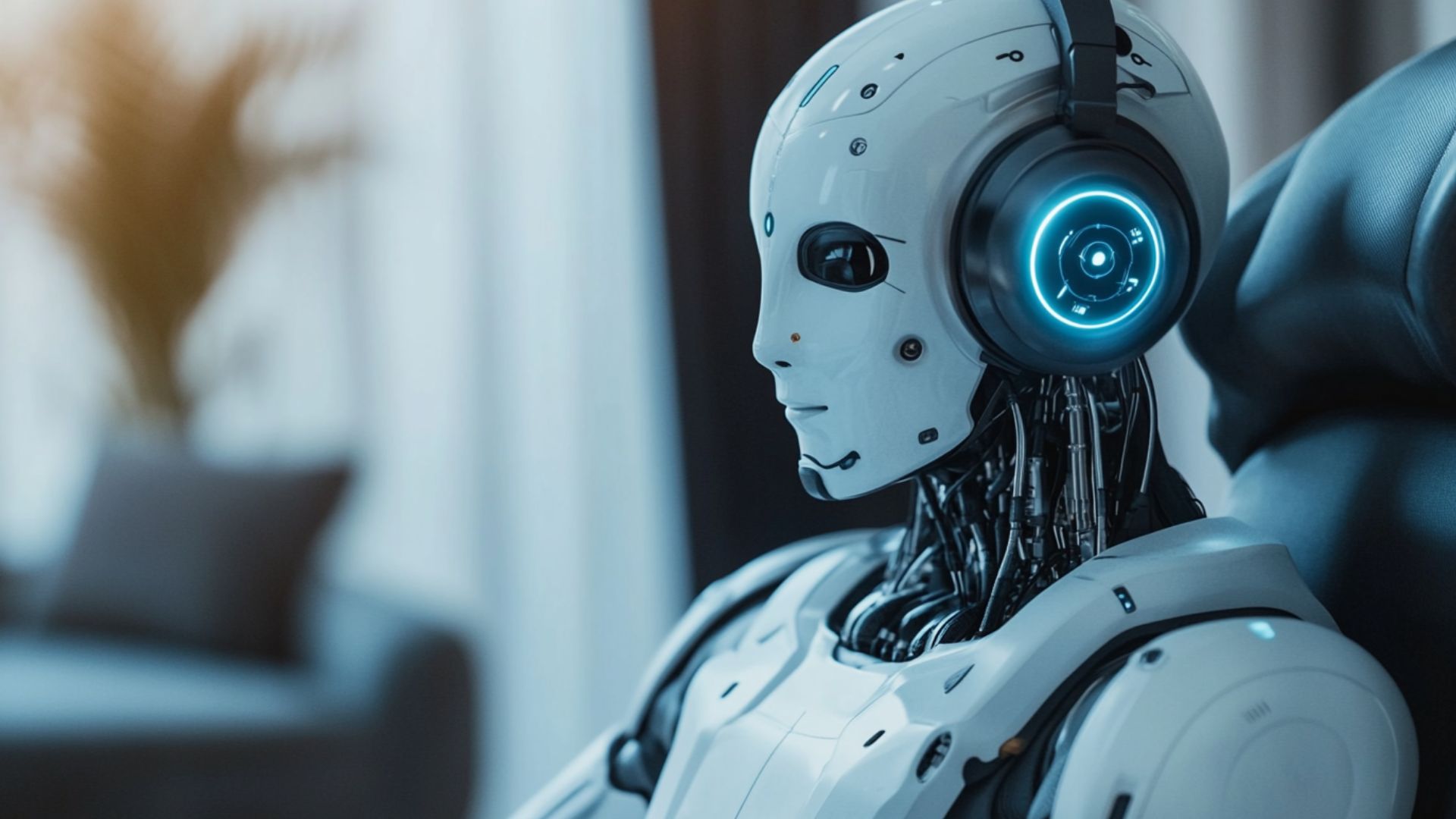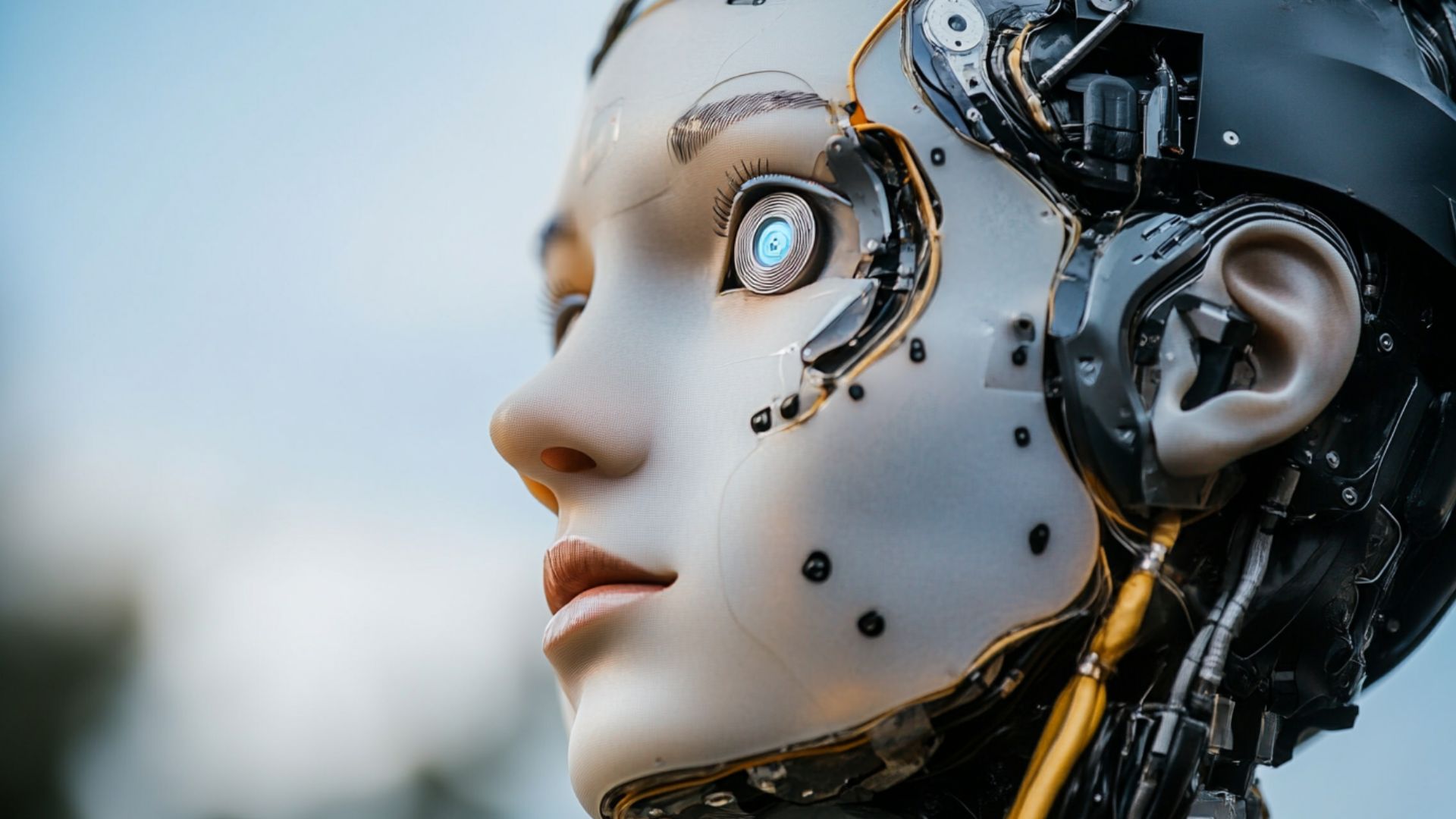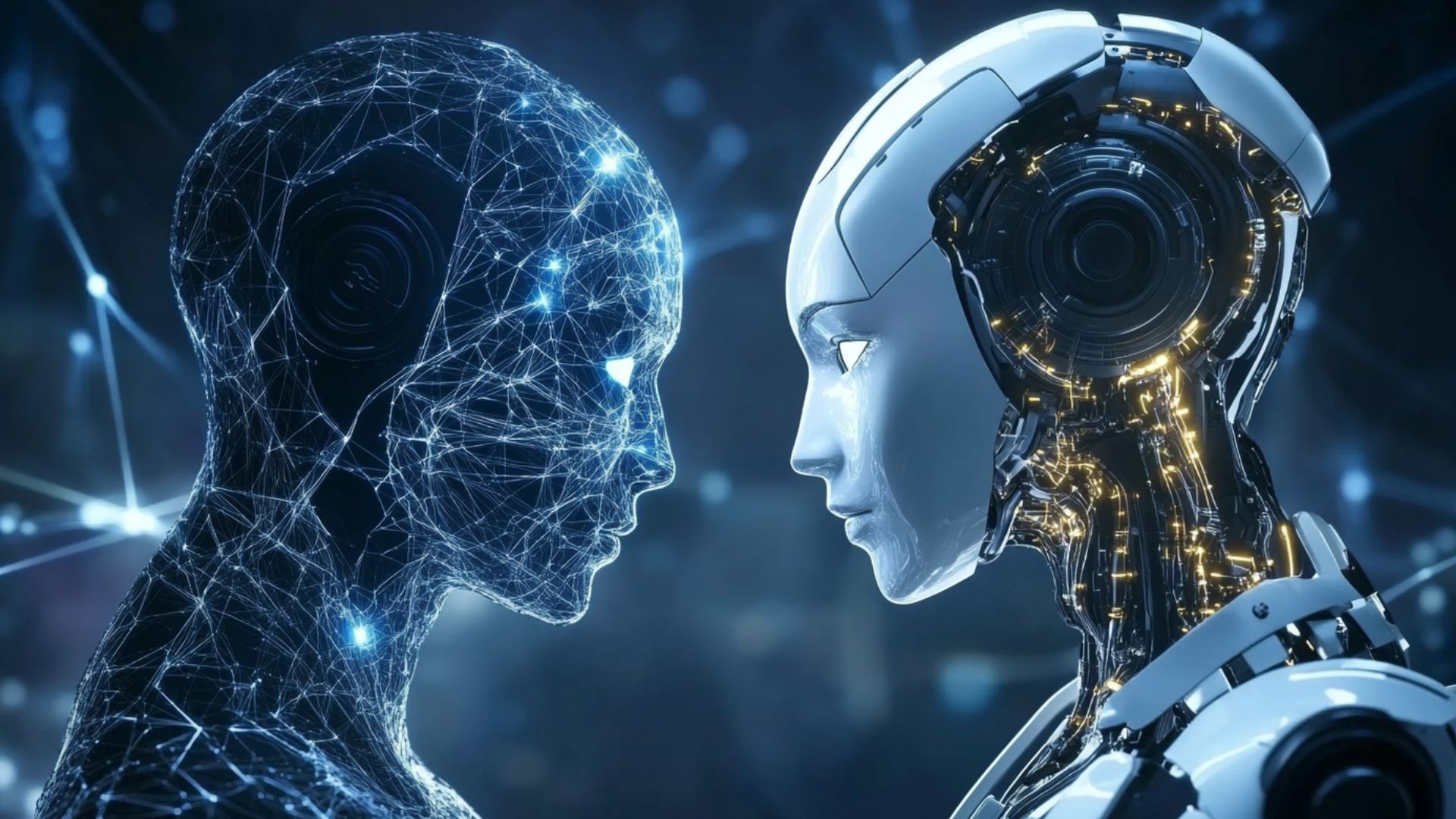AI and the Workplace: How Businesses Are Leveraging Artificial Intelligence
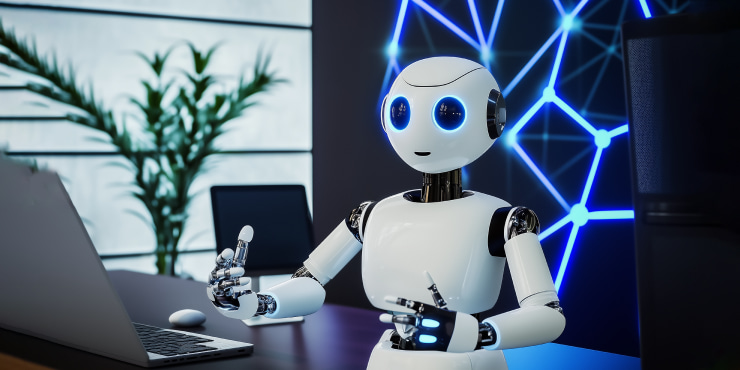
Maintaining market competitiveness is essential for businesses. Every workplace should be productive and staffed by skilled professionals. AI transforms the workplace and streamlines and optimizes work. Routine tasks are automated with high accuracy and effective results. It is common to hear the question, “How to use AI in the workplace?”. Usually, multi-million dollar companies use artificial intelligence for customer service.
A well-designed workflow enhances productivity and efficiency. The use of chatbots helps to process a variety of customer requests and receive prompt responses. Many areas related to people use artificial intelligence. Machine learning helps to process data and improve productivity. Workplace AI uses natural language processing to analyze sentiment. Virtual assistants can often provide answers to customers by processing their requests.
The Impact of AI on Workplace Efficiency and Automation
AI is transforming business and revolutionizing workplace efficiency. It automates routine tasks and minimizes human errors. Machine learning enables analysis of massive datasets. In turn, employees can focus on higher-value tasks. Many companies integrate AI-based tools to optimize their operations. Artificial intelligence complements any business rather than replaces employees. It is essential to understand “How is AI used in the workplace?” and its main applications:
- Task automation. A significant advantage of artificial intelligence is the performance of routine tasks. Automating a task means entering data, processing various accounts, and generating reports. This process reduces employee workload on employees and the automation of tasks.
- Reducing human error. An equally important benefit is the reduction of human error thanks to AI algorithms. Algorithms increase the accuracy of data analysis and quality control, minimizing serious errors.
- Increased productivity. AI can analyze large amounts of data to provide valuable, data-driven insights. Thanks to AI, companies can make data-driven decisions and strategic choices.
They play a key role in optimizing business operations. AI in the workplace uses notable chatbots and virtual assistants to process customer requests. With these tools, customers receive round-the-clock assistance and resolve issues. Automatic scheduling simplifies calendar management and reduces scheduling conflicts. Automated platforms help to create targeted content relevant to the business. They help manage customer relationships and provide a good customer experience.
AI for Task Automation: Boosting Productivity in the Workplace
AI in the workplace plays a key role in automating multitasking. It transforms the workplace into a high balance between quality and efficiency. Employees can focus on equally important tasks and creative work. AI is involved in everything from administrative processes to customer service. It increases efficiency, reduces human error, and optimizes workflows. These are the key areas where AI automates tasks:
- Many AI-powered processes process large amounts of data. They improve organization and error reduction of manual work.
- AI and the workplace are interconnected through the use of chatbots. They process customer requests, assist them 24/7, and provide fast response times. A significant advantage is the reduction of the workload of employees with multitasking.
- Virtual assistants help schedule meetings and manage emails. Reducing the amount of work for employees allows them to do meaningful work. AI performs all tasks without human intervention and delivers effective results.
Some examples of AI industry automation are helpful. You can learn more about where AI proves most effective. Here are some areas:
- Healthcare. AI in the office has significant advantages, and it is also applied in healthcare. Tools help automate patient records and process insurance documents. Thanks to artificial intelligence, patients can schedule their appointments and use medical services.
- Finance. Artificial intelligence plays a vital role in finance. The tools help to detect any anomalies and fraud. Artificial intelligence analyzes various transactions for suspicious activities and transfers alerts to relevant departments.
Enhancing Decision-Making with AI-Powered Insights
Artificial intelligence in the workplace is revolutionizing business decision-making. Decision-making is being improved with AI-Power Insights. Predictive analytics and actionable insights help organizations make good decisions. They are built on strategies, speed, and processing of large amounts of data. AI helps to identify patterns and predict future trends. Here's the key information about AI-based decision support:
- Real-time data analysis. AI tools process vast amounts of data in real-time. They help companies quickly understand changing trends and stay competitive in the market. Companies understand operational problems and what customers like. By understanding "what is AI in the workplace?" companies can use it correctly.
- Predictive analytics. Artificial intelligence uses data all the time. It is necessary to predict future trends that will be valuable to customers. Companies can anticipate customer requirements and financial risks and adjust to them.
- Practical information. Accurate data is essential for managing business strategies. Unique AI-based dashboards can generate recommendations. These recommendations are based on what customers like and are interested in. The applications of AI are broad for marketing, sales, and supply chain management.
How AI Is Revolutionizing Employee Collaboration and Communication
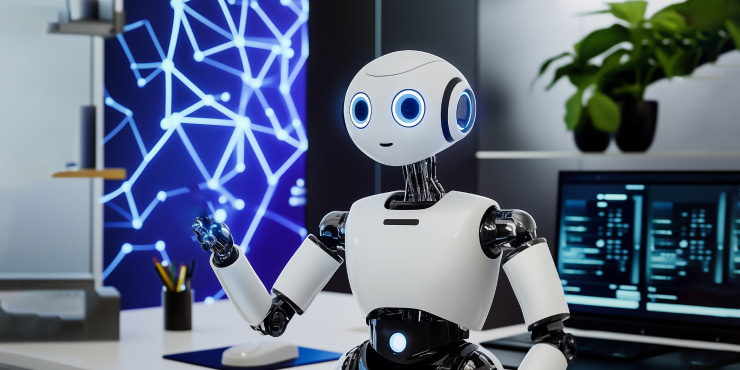
It is important to understand "how to use AI in the workplace?" and know its applications. Artificial intelligence makes collaboration in the workplace more effective and efficient. Communication and workflow optimization are improving. Tools can increase productivity and promote customized teamwork. Tools help improve collaboration and communication. Here is their main characteristic:
- Virtual assistants. Virtual assistants help you to handle multiple tasks and practical operations. They help automate routine tasks and summarize various results. Virtual assistants such as Microsoft Copilot can schedule meetings.
- Real-time translation. AI in the office is often used for real-time translation. Translation tools can overcome language barriers and understand human speech. They allow many teams from different countries to collaborate. Google Translate is commonly used for this productive and well-organized work.
- Project management platforms. Platforms automate the distribution of complex and routine tasks. They help to predict the delay of specific projects and increase the efficiency of the workflow.
It's useful to understand the impact on team dynamics and remote work culture. Chatbots and virtual assistants can be used to hold meetings remotely. They help to improve team discussions and resolve specific issues. AI in the workplace consistently provides increased productivity thanks to automatic reminders. Predictive analytics helps business companies stay in the competitive market. Artificial intelligence connects multiple time zones and allows for remote collaboration.
AI-Driven Collaboration Tools for Enhanced Team Productivity
There are interesting examples of AI in the workplace that help to customize productivity. Good examples are tools that help to communicate, plan, and manage tasks. They automate workflows and establish effective work processes. There is an improvement in real-time planning and communication. The company gains uninterrupted collaboration across time zones and locations. As a result, the company reaches a new level and has many satisfied customers. Here are some interesting examples of advanced AI software:
- Microsoft Teams AI. It allows scheduling meetings and generating tasks to improve work. An integral part of the tools is improving the clarity of video calls.
- Slack AI. It helps to automate responses and organize conversations. Employees are offered the appropriate channels for discussion and feedback.
The benefits of AI in the workplace lie in the planning and management of workflow. Automating meeting scheduling is essential for close communication and productivity. There is a reasonable and balanced workload and coordination of meetings. A significant advantage of artificial intelligence is the improvement of remote work. Repetitive tasks are automated and manual workload is reduced. A significant advantage is the ability to communicate remotely from anywhere in the country. Communication barriers are eliminated, enabling seamless communication. Thanks to artificial intelligence, performance tracking is improving. It is now possible to coordinate remote teams and monitor their comprehensive work performance.
AI in Communication: Overcoming Language Barriers in Global Teams
Workplace AI revolutionizes communication and ensures seamless collaboration. The modern business world relies on diverse teams to improve efficiency. AI is revolutionizing communication and helping in various situations. A good example is overcoming language barriers and increasing team efficiency. AI is making it possible to use workplaces for inclusive cases. Here are the main points about the importance of AI-driven translation in global business:
- The right AI tools are handy. For example, Deepl provides instant translation of any email. It can also translate documents, chat conversations, and provide valuable feedback. People get valuable data that helps them work in the future.
- Good ways to use AI at work include real-time speech transcription. Some platforms offer real-time subtitles and translation. A significant advantage of this application is to conduct effective virtual meetings. They become possible for many teams from different parts of the world.
- Notable chatbots and voice assistants can understand and respond in multiple languages. They effectively facilitate interaction between customers and teams. In turn, business teams adjust their work and maintain their expertise. Customers get a good experience and want to try it again.
AI eliminates communication barriers in multicultural cooperation. It uses unique tools and algorithms that help solve this issue. AI in the workplace is widely used, which provides improved clarity. Artificial intelligence provides accurate translations and reduces misunderstandings. A significant advantage is fast translation for online meetings. It is also essential for understanding emails and reports. Automatic translations help save time and simplify business operations. Thanks to tools, misunderstandings, and cultural barriers are overcome. The effective approach ensures close cooperation that has a positive impact on business development.
AI in Human Resources: Revolutionizing Recruitment and Employee Management
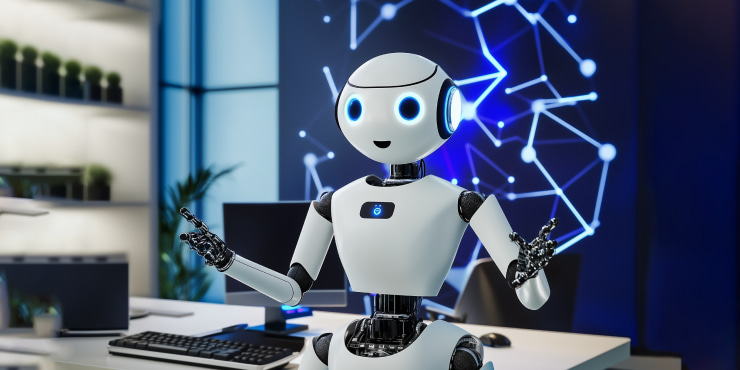
Artificial intelligence is transforming the business world and has significant advantages. The benefits of AI in the workplace include helping to adjust your business productively and retain employees. Task automation, data analysis, and forecasting play a big role in this matter. Thanks to artificial intelligence, the HR department can make informed decisions based on data. Here is how AI benefits the recruitment process:
- Identifying the best candidates. AI-driven platforms analyze resumes. They can evaluate a person’s skills and experience and select the best candidates for the job.
- Predicting employee success. Thanks to predictive analytics, a person’s experience and skills are assessed. The issue of their cultural fit is also investigated, and decisions are made. These decisions are passed on to the HR teams for further collaboration and personnel selection.
- Reducing bias. AI in the workplace allows you to minimize bias by focusing on skills and qualifications. Traditionally, selection is based on a person’s experience and skills and not on demographic factors.
- Performance monitoring. AI-based tools provide continuous performance analytics. Everything happens in real-time, and progress is tracked, which is tracked by the staff.
- Employee engagement. An integral part is the use of AI chatbots. They collect various employee feedback and identify signals that are extremely important for the company. The right approach ensures the proper hiring of employees and their high qualifications.
- Workforce retention and planning. Thanks to AI, interest in work is predicted. AI analyzes employee behavior and allows the HR department to take the necessary measures. This tracking will enable you to investigate staff turnover and resolve issues instantly.
Challenges and Ethical Considerations in Implementing AI in the Workplace
AI and the workplace have a strong relationship characterized by excellent experience and practice. Artificial intelligence is changing workplaces and improving company productivity. Thanks to this, the business sector is being transformed, and its competitiveness is improving. However, some issues arise that raise many questions. Data privacy, job displacement, and ethical issues are the main issues. Although artificial intelligence increases efficiency, these issues need to be addressed immediately. Here are the main challenges of implementing AI:
- Data privacy and security. AI in the workplace offers many benefits, but privacy and security concerns remain. Customers and employees have concerns about data protection and cybersecurity risks. Companies must adhere to certain norms and standards to protect confidential information.
- Job displacement concerns. A big issue is the risk of losing jobs with the automation of jobs through artificial intelligence. It is essential to understand that artificial intelligence is a tool to complement and improve work productivity. Companies should focus on retraining employees and understanding how to work with AI together.
- Ethical dilemmas. AI in the workplace can raise ethical dilemmas that need to be addressed. AI models inadvertently perpetuate bias in hiring. Ensuring transparent algorithms and regular reviews will help to address and resolve this issue.
Understanding the transparency and accountability of AI is essential for productivity. Ensure ongoing human oversight of AI and its performance. AI should be used as a productivity enhancer, not as a targeted replacement for employees. Establishing guidelines for the fair use of AI will ensure inclusivity and data privacy.
